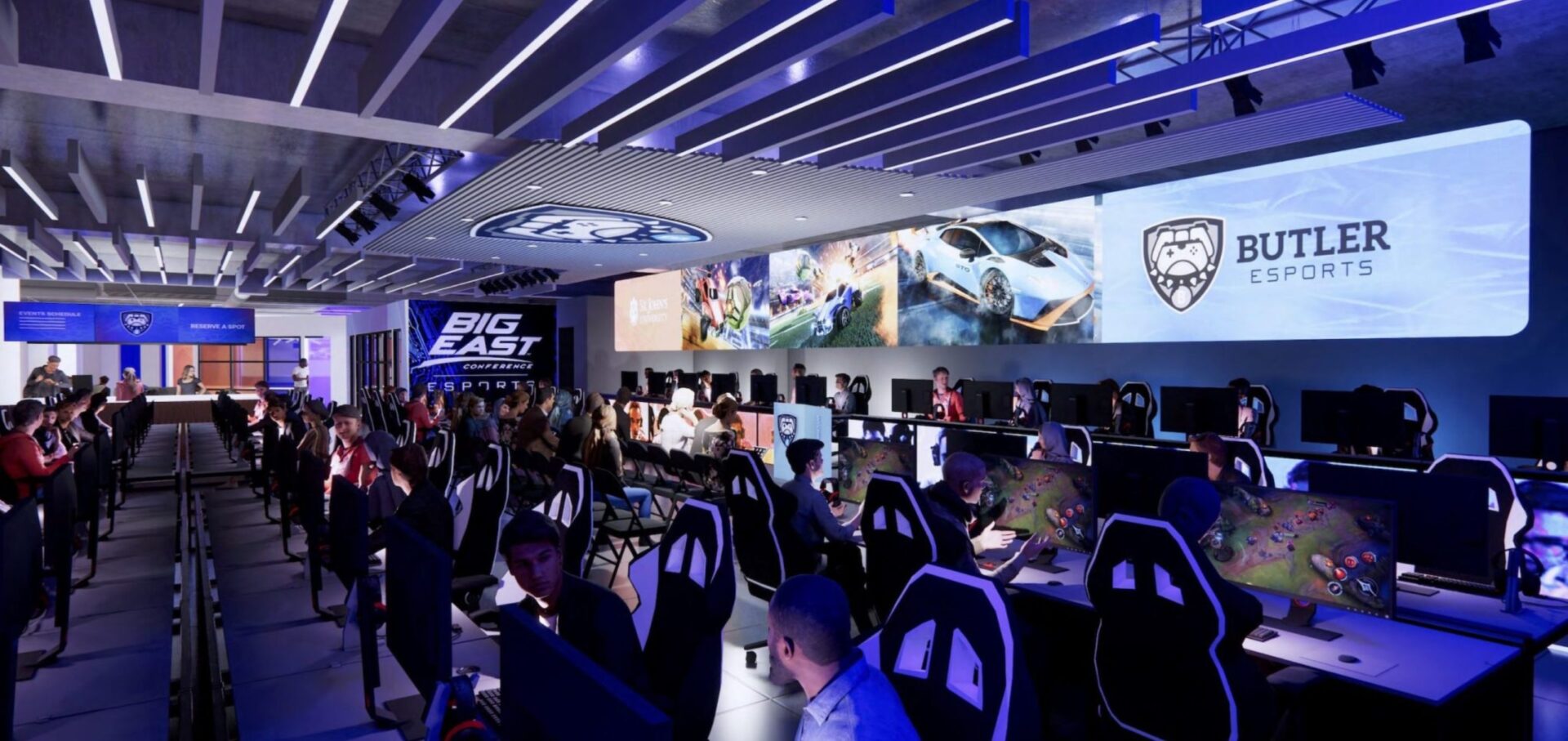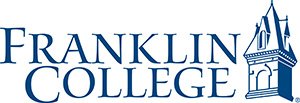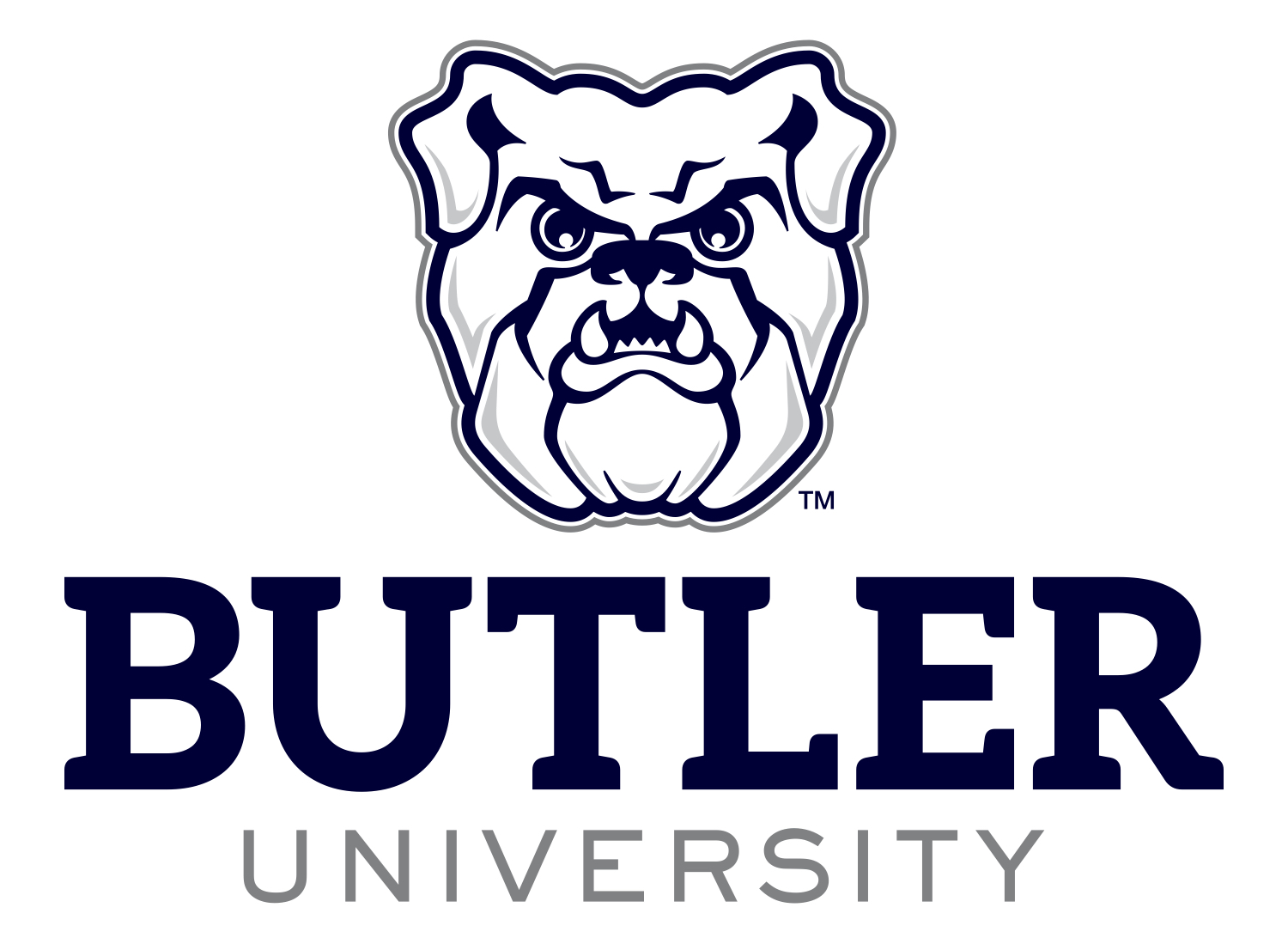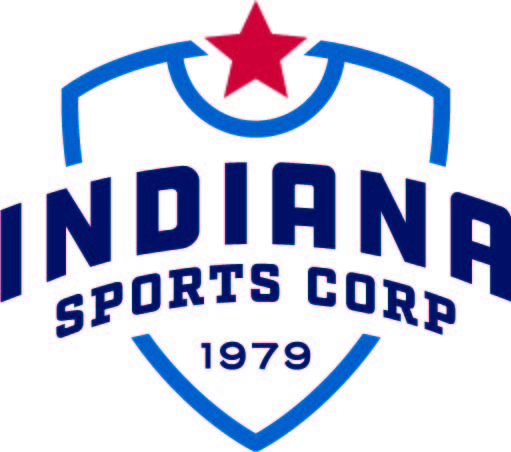More than ‘just video games’: Indiana universities invest in esports curriculums and careers paths
When Twitter launched and started gaining popularity, people scoffed at the “microblogging” site and said it would never last. Today, some politicians are demanding that Twitter be treated like a public utility because it is so entrenched in and vital to our public discourse.
Similarly, esports had its detractors early on, but there is no debate at this point that esports is much more than just playing video games, and it’s here to stay. According to Insider Intelligence, esports spectators (viewers) are up 11.5 percent from 2021 to 2022 and the industry is “on track to surpass $1 billion in revenue for the first time this year.” The sector is growing at an incredible rate and shows no signs of slowing down.
With this growth comes new opportunity, particularly at the collegiate level. In fact, many colleges and universities in Indiana offer some type of esports curriculum, teams or leagues. “Several colleges and universities are investing in teams and facilities,” reports Ryan Vaughn, president of Indiana Sports Corp. “The private real estate development market is also showing interest in creating spaces for all ages to engage in esports leagues and tournaments.” The state as a whole is seeing an increase in interest and investment in the sector.
Two prime examples of higher education organizations investing in esports are Butler University and Franklin College. They see the incredible potential in investing in esports both to attract students and also for emerging career paths.
Competition, curriculum, and community: Butler’s approach to esports
According to Eric Kammeyer, the director of esports and gaming for Butler University the Butler program is built around a 3-pillar model focused on competition, curriculum, and community.
Competition is how Butler’s program got started. In 2017, students initiated the program with one gaming title. The endeavor quickly grew to multiple titles that compete in multiple leagues and organizations. According to Kammeyer, with the growth at the high school level, “we will continue to see the number of teams in each title grow along with the new titles we support.”
Curriculum is why Butler exists, and the university wants to continue connecting students to the end-to-end pipeline of career placement. “We want to provide them with the educational foundation that excites them to engage and assist with landing them their dream job,” says Kammeyer. “Esports is a mechanism to provide experience in a number of fields including computer science, production, journalism, and business to name a few.”
Community is where Butler is going. “We are excited to welcome the community to activate alongside us. With our new esports facility, we will be engaging with community centers, middle schools, high schools, pro teams, tournaments, and corporate events. We will be having companies working in The Park to engage with our faculty, staff, and students on various activations in educational technology and esports,” says Kammeyer.
Butler will be introducing The Park this fall, a new facility focused on delivering educational technology with esports and gaming. Kammeyer reports they already have a number of organizations inquiring about the facility and looking to secure spots for their students, faculty, and staff.
GRIZGaming: esports taking shape at Franklin College
Early in 2021, Franklin College announced its plans to launch an esports program to compete during the 2021-2022 academic year. Andrew Hendricks, director of athletics at Franklin College, saw the potential due to the growth of the industry and was a champion of getting the program established.
As quoted in Franklin College’s press release about the esports program, Hendricks says, “The popularity of gaming, especially among college-age students, is at an all-time peak, so launching our program at this time makes perfect sense. It has the potential to add significant value to our campus and to our students’ overall college experience.”
In addition to launching the esports program, Franklin College converted space inside their Spurlock Center to offer a new, state-of-the-art gaming arena. “The facility features 18 fully-functioning rigs, large screen monitors for viewing, a direct Twitch feed, applicable audio and visual equipment to support streaming, and a sophisticated lighting and control system,” says Hendricks. “The space also features designated areas for gamers to connect and strategize for competitions, designed with comfort and a physical/visual flow to enhance the gaming experience for participants and coaches.”
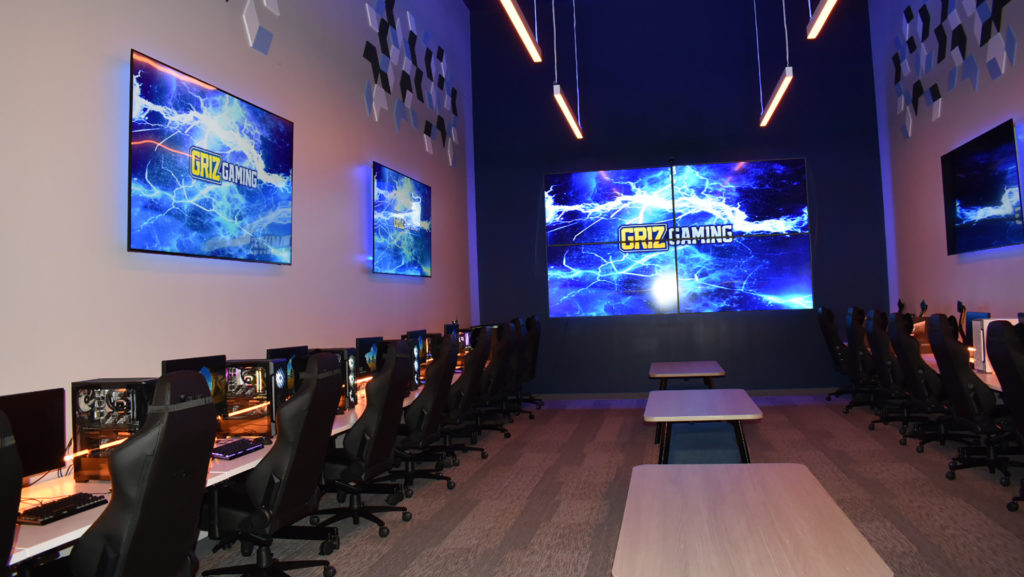
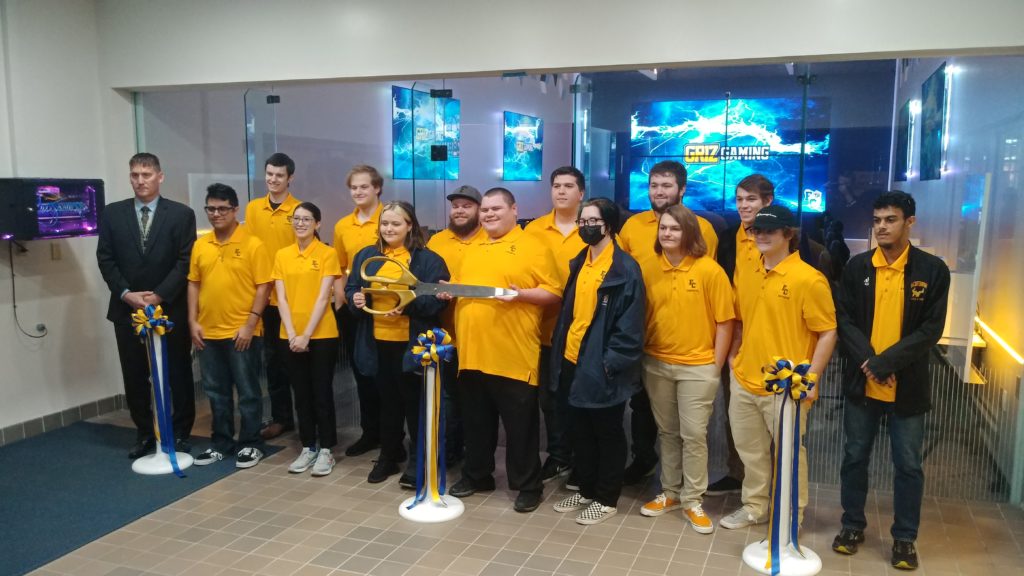
According to Franklin College, many alumni have “expressed excitement about the new program and some have provided support by donating funds toward the construction of the new center and the purchase of gaming equipment.” It’s clear that students and alumni alike are glad to incorporate esports into the fabric of the college.
“Franklin College is committed to an inclusive and immersive experience for its students, and esports is yet another example of that commitment,” says Hendricks. “Our efforts with digital fluency are leading the way amongst private colleges, and we expect to see great things from the program in the coming years. As evidenced past, present, and now the future, Franklin College is a place students can get directly involved, make a difference, and have an immediate hands-on opportunity within the world of esports and beyond.“
Why esports is so much more than gaming
When esports was first evolving, some thought it was “just playing video games”. Some parents still have a tough time understanding how esports can be a useful and productive arena for their children.
“There are plenty of stereotypes and misinformation about the industry,” says Kammeyer. “The biggest one is that this isn’t a viable career path or opportunity for students. The fact is that esports teaches so many valuable skills that can be leveraged in life, including critical soft skills, or interpersonal skills, like teamwork, communication, and leadership.”
Hendricks agrees. “While much of what is known to the everyday person comes on a computer monitor, eSports goes well beyond the games themselves. Not unlike other competitive ventures, the teamwork, camaraderie, strategy and lessons are far-reaching, not to mention that the ‘thrill of victory and agony of defeat’ are real and immediate for players.”
Plus, esports is opening very real, lucrative, and fulfilling career paths. It isn’t just about the players, either. “The athletes comprise only a small segment of the job opportunities in the industry,” says Vaughn. “Game design, production, and coaching are all areas of significant growth.”
When asked about what he would say to those who claim esports is “just playing video games”, Vaughn had a great response. “Think about other sports. It’s just a bat and ball, a ball and hoop, or club and a ball, right? Like all sports, it’s a community of people invested in common activity that is full of nuisance, skill, growth, and competition.”
The future of esports in the NCAA
As the sector continues to grow, a question that continues to come up is whether the NCAA will make it an official sport. Butler, Franklin College, and Indiana Sports Corp all seemed to have similar opinions on this question.
“We continue to stay engaged with the NCAA, our BIG EAST Conference office administration as well as high school associations to gauge the future of structured esports play,” says Kammeyer. “However, I don’t think the NCAA will get involved until the waters have calmed on the traditional sports side as well as the esports industry as a whole. Esports is still in its infancy with a lot to work out. In addition, esports isn’t always facilitated under athletics which has its pros and cons.”
Hendricks also believes esports will take a different path. “With governing organizations already vying for position and membership, the entry point will get more competitive from this point forward. Because the industry is much different and does not have the history of many traditional sports, it is likely that esports will continue to blaze new trails and take a path unto itself,” says Hendricks.
“I do not think the NCCA will make esports an official sport,” says Vaughn. “Most esports programs are not contained in athletic departments of colleges and universities. These programs are academic or club-based and as such enjoy a great deal more freedom than their traditional sports programs. I would imagine the schools will want to maintain that structure, and it’s the schools, as members, that drive the NCAA’s decisions on sports.
While the NCAA might not make it an official sport, it does not take away the legitimacy of esports and the growth we continue to see.
What’s next for esports?
While there are established teams, organizations, and even protocols, esports is still evolving and growing, and we’ll likely see it contribute to other applications and technology development.
“We will continue to see the esports and gaming industry push the envelope when it comes to VR, haptics, and the metaverse. However, these will take time to develop and allow for the market to catch up in the form of financing, talent, and overall structure. There is also a large amount of venture capital leveraging the industry which will ebb and flow. We will see this play out with new innovations and organizations that will enter and exit the market with a quest for growth and sustainability,” says Kammeyer.
“The entrepreneurial spirit is blossoming across all things related to gaming, and colleges and universities are quickly recognizing the value as it relates to the overall experience for modern students,” says Hendricks. “As associated careers and products are created, higher education will undoubtedly help take a lead role in preparing students for successful futures.”
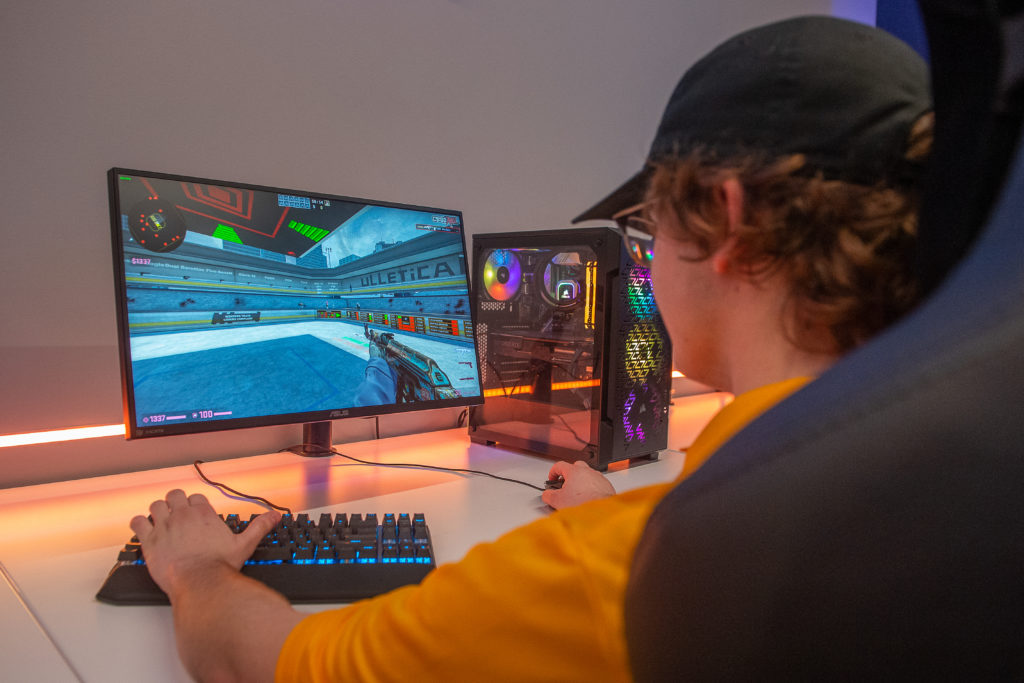
“Esports is already a billion dollar industry with real-world applications. Courses connected to esports and digital fluency, in general, are quickly developing as a result, and while the landscape of curricular offerings will change, a foundational education of critical thought and innovation will continue to lead the way in an ever-changing globally connected world. Esports in Indiana is a direct reflection of a larger national and global explosion with new high school, college, and professional teams being created with regularity. As most experts would agree, we are just in the infancy of this growth industry, and there seems to be no limit to that growth as AI and virtual technologies continue to evolve,” says Hendricks.
As this new world of esports continues to grow and change, we are excited to see what comes next. This trend won’t be slowing down anytime soon.

